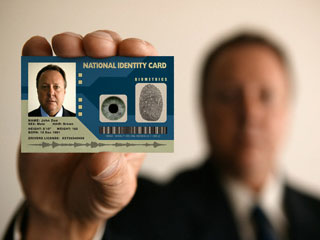MAPLight.org has compiled some numbers seeking to correlate changes in voting on telecom immunity with contributions from telecom providers.
Keeping politicians' hands off the Net & everything else related to technology
MAPLight.org has compiled some numbers seeking to correlate changes in voting on telecom immunity with contributions from telecom providers.
When I saw the announcement of Google’s “Internet for Everyone” campaign on their Public Policy Blog, I have to admit, my BS detector started to rise.
“Ubiquitous and open broadband access for every American [should be] a priority in the next administration,” they say.
How about now, Google, and you?
You could have bought the spectrum that you encumbered with “open” rules in the 700 MHz auction, but you didn’t. Now you’re sitting back saying the government should do it for you.
Who would gain from the next administration making broadband “a priority”? Google, of course.
Then I clicked over to the site and saw the evil kid alone at the computer in the living room. Is that a parent drinking wine in the kitchen? Really, I couldn’t help myself.

The campaign “stands for” access, choice, openness, and innovation. What about fair play? Peace? Ending world hunger? A platitude in every pot and a bromide on every CRT.
Really, it’s a bunch of pap that Google will use in Washington, D.C. to insulate itself from competition and drive wealth to its owners. Seeking profit is what compaines like Google are supposed to do – but not using the nation’s public policies.
Update: Julian Sanchez nails it with: “All this may have a whiff of ‘and a pony’ about it . . . .”
Ars reports on an important case down in Florida:
The defense against the obscenity charges will focus, in part, on the suggestion that interest in group sex fails the community standards test. Google search trends will be used to demonstrate that, except for brief periods near Thanksgiving, searches for “orgy” consistently outrank attempts to find information about “apple pie” in Florida . The rest of the year, orgy searches are closer in frequency to what might be expected to be a common activity in Florida, “surfing.” An astute reader at Slashdot also recognized that, among Floridian Internet users, “boobs” has built and then expanded a lead over surfing during the past three years.
Personally, I find the legal concept of “obscenity,” and the notion that obscenity rules could pass First Amendment muster, to be baffling. I can’t imagine what “compelling state interest” could trump the plain language of the First Amendment to allow the censorship of sexually explicit content consumed by adults in the privacy of the home.
Couch potatoes of America, have no fear… Your friendly neighborhood super-regulators are about to swoop in and save you from the scourge of loud TV ads and “illegal” product placements! As we all learned in our high school Civics 101 classes, this is why the American Revolution was fought: We Americans have an unambiguous constitutional birthright to be free of the tyranny of “excessive loudness” during commercial breaks and pesky product promos during our favorite network dramas. (Seriously, it’s right there in the footnotes to the Bill of Rights; you probably just missed it before.)
Rep. Anna Eshoo (D-Calif.) has the first problem covered. She and her House colleague Rep. Zoe Lofgren (D-Calif.) are proposing H.R. 6209, the “Commercial Advertisement Loudness Mitigation Act.” (Oh, isn’t that so cute! The “C.A.L.M. Act”! How very, very witty.) The CALM Act would address “volume manipulation” in TV ads by making sure that TV ads are not “excessively noisy or strident.” (Strident! We Americans hate “strident” ads.) The bill would empower regulators at the Federal Communications Commission to take steps to ensure that “such advertisements shall not be presented at modulation levels substantially higher than the program material that such advertisements accompany; and, the average maximum loudness of such advertisements shall not be substantially higher than the average maximum loudness of the program material that such advertisements accompany.”
Clearly, this is valuable use of our regulators’ time. I look forward to the day when I can visit the FCC and see my tax dollars at work as teams of bureaucrats closely monitor each episode of “Desperate Housewives” and “Swingtown” in search of such malicious volume manipulation during the commercial breaks. (Incidentally, where is the form I need to fill out to get that job? Heck, I’ll take minimum wage pay to do this all day long.)
Continue reading →
The Wikipedia entry on the 1992 Copyright Renewal Act is pathetic, and needs to be improved. I don’t know enough about it to add very much content, but I bet there are a few copyright nerds reading TLF who could help out!
A month ago, I wrote here and in a Cato TechKnowledge article about the telling imagery that a company called L-1 Identity Solutions had used in some promotional materials. The cover of their REAL ID brochure featured an attractive woman’s face with her driver license data superimposed over it, along with her name, address, height, eye color, place of birth, political affiliation, and her race. This is where the national ID system advanced by the REAL ID Act leads.
Here’s another example. A group called Family Security Matters has reprinted on its site a blog post supporting the $80 million in grant money that the Department of Homeland Security recently announced, seeking to prop up the REAL ID Act. (I’ve written about it here and here.)
What’s interesting is not that a small advocacy group should support REAL ID, but the image they chose to illustrate their thinking: a man holding his “National Identity Card,” his fingerprint and iris images printed on it, and presumably programmed into it.

Were there ever any doubt that REAL ID was a national identity system and a step toward cradle-to-grave, government-mandated biometric tracking, Family Security Matters has helped clear that up.
Over at BroadbandCensus.com, my friend Drew Bennett, who has graciously agreed to be a special correspondent for the publication while he is in New York covering the Personal Democracy Forum, has been pumping out the blog entries.
Here are some of his latest… just from today:
NEW YORK, June 24 – Jonathan Zittrain, author of “The Future of the Internet and How to Stop It,” took to the stage at the Personal Democracy Forum to focus “civic technologies:” the personal computer, spreadsheet applications, Wikipedia, even the Internet itself are all examples. read more
NEW YORK, June 24 – Stanford law professor Lawrence Lessig presented his ‘Declaration For Independence’ to the Personal Democracy Forum here today, fingering this problem in the American political system: the perception of a government disproportionately influenced by the stakeholders that fund political campaigns. read more
NEW YORK, June 24 – “What happens next?” is the question Andrew Rasiej used to start off the Tuesday morning panel discussion at the Personal Democracy Forum here. read more
The complete index page of articles, blog posts, and press releases on BroadbandCensus.com is available here.
We’re now learning the meaning of a new policy that Americans can’t “willfully” refuse to show ID at airports. The Consumerist has a write-up of one man’s experience with IDless travel. It turns out they do a background check on you using, among other things, your political affiliation.
That’s a nice window onto what identity-based security is all about: giving the government deep access into all of our personal lives. Of course, this type of security is easy to evade, and the 9/11 plot was structured to evade it. Checking ID cannot catch someone who has no history of wrongdoing.
Identity checks at airports require law-abiding American citizens to give up their privacy, including their political affiliations, with essentially no security benefit.
Ars has an interesting interview with the head of Sandvine, the company at the heart of the Comcast Kerfuffle:
What Caputo seems to think he’s doing with Sandvine is enabling “all-you-can-eat” models at reasonable prices. People who argue for network neutrality are “painting the service providers into a corner,” he says in the interview. “If all packets are created equal then it’s equal utility and we should be charging on a per-packet basis, and I don’t think anybody wants to go there.”
Without traffic management, especially of P2P, the idea is that prices would either go up or congestion might reach truly terrible new heights, and Caputo believes that most users would rather just throttle P2P; let it work, but slowly and in the background, so that ISPs don’t need to make expensive infrastructure improvements and everyone can continue eating at the buffet for $30 or $40 a month. We might also see tiers emerge that allow P2P users free rein for, say $70 a month, while non-P2P users could keep paying lower prices. Caputo insists, “it’s going to be laughable in the next two or three years that people used to say all packets should be treated equally.”
This strikes me as seriously misguided. The obvious problem is the issue of evasion. For example, I’ve written before about BitTorrent header encryption, a technique that helps BitTorrent users evade deep packet inspection. No doubt Sandvine is working on finding new ways to detect encrypted BitTorrent packets. And if they do, the BitTorrent hordes will start looking for better evasion strategies. An arms race, and one that Sandvine is unlikely to win.
Continue reading →
Over at the Communications Workers of America’s blog, Speed Matters, the union claims credit for the Federal Communications Commission’s recent order requiring broadband companies to provide the FCC with more information, including data about availability by Census tract.
The blog notes:
The CWA Speed Matters campaign can claim another victory – this time at the FCC. As part of our Speed Matters campaign, CWA called on the FCC to increase its definition of “high speed” – a definition that had not changed for nine years — and to improve its broadband data collection.
Well, it is possible that the FCC’s broadband data collection will be improved. But the public is not likely to benefit from any improvements. Continue reading →